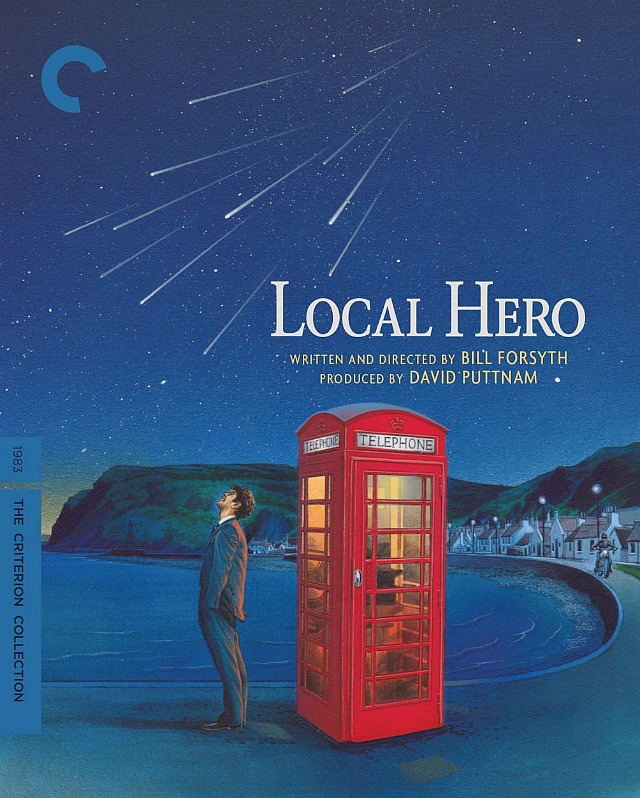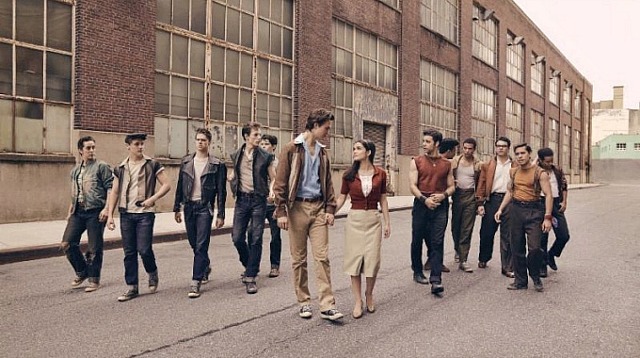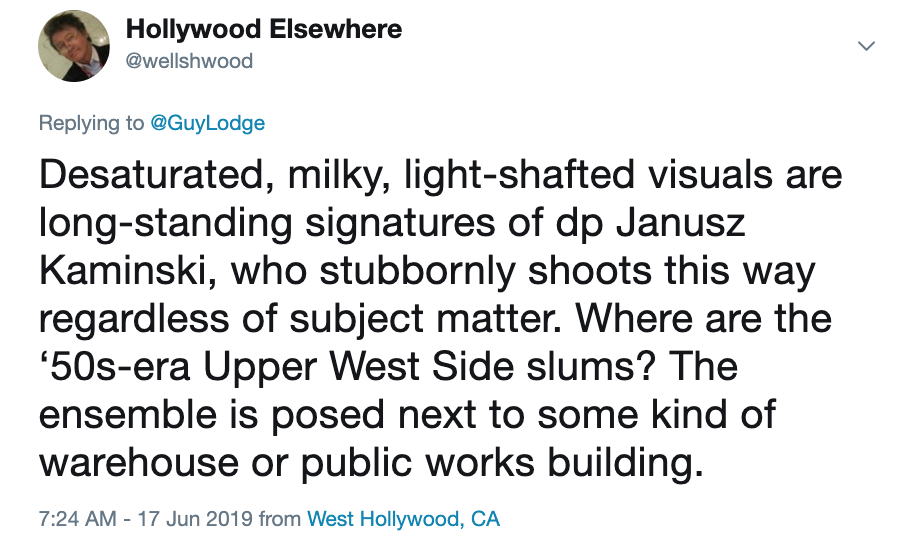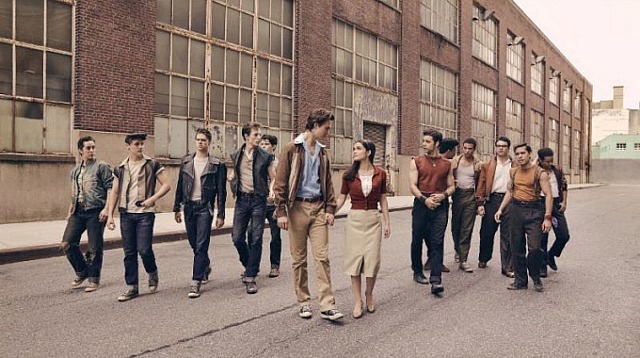Three and a half years ago I had the honor of briefly speaking with Ryuichi Sakamoto at a Golden Globes after-party. At that point I’d been playing his Merry Christmas, Mr. Lawrence theme in my head for 30 years, but I was especially knocked over by his Revenant score. He was dealing with a health threat at the time; I gather he’s doing better now.
Day: June 17, 2019
Urgent “Local Hero” Message to Criterion Guys
Criterion is preparing a 2k digital restoration Bluray of Bill Forsyth‘s Local Hero. As the disc will pop on 9.24.19 and it’s mid-June now, I’m guessing there’s time to fix the sound mix on the last shot before the credits.
Play the below YouTube clip — the shot I’m speaking of begins at 1:59 and ends at 2:15. When we hear Ferness’s only pay phone ringing we know it’s Peter Reigert calling from Houston — a classic bittersweet moment. Actually one of the saddest, loneliest moments in cinema history.
But you can’t really hear the phone ringing all that clearly. You can “hear” it (I listened three times with headphones) but only barely, and Mark Knopfler‘s swirly-guitar-echo score is too loud. The Criterion guys have to turn down the Knopfler and bring up the sound of the telephone a notch or two — make it pop just a little bit more.
Please don’t fuck this up, Criterion…please. The ending totally depends upon the audience being able to clearly hear that faint tinny jingle.

Lillian Gish Bitten By Politically Correct Wolves
With the 80-year-old Gone With The Wind more or less culturally discredited for its unfortunate racial content and D.W. Griffith‘s The Birth of A Nation all but erased from common memory for its horrid depictions of the KKK amid other racial affronts, it’s not entirely surprising that the reputation of Lillian Gish, the star of Birth of a Nation as well as arguably the greatest actress of the silent era, is also being trashed by the forces of p.c. cleansing.
Roughly six weeks ago the trustees of Bowling Green State University decided to remove Gish’s name from its Gish Film Theater in the Student Union because of her Birth of a Nation association.
Film scholar, author and HE friendo Joseph McBride, co-writer of “An American Film Institute Salute to Lillian Gish” for CBS-TV in 1983 and ’84, has posted a suitably outraged essay about the Gish debunking.
MassLive’s Ray Kelly is reporting that “more than 50 prominent artists, writers, and film scholars are calling for the restoration of Gish’s name to the BGSU theater. Among those signers: Martin Scorsese, James Earl Jones, Helen Mirren, George Stevens Jr., McBride, Malcolm McDowell, Lauren Hutton, Larry Jackson and Joe Dante.”
McBride confesses to “mingled disbelief and outrage” after hearing that Gish has become “the latest victim of political correctness run amok.” Here’s the link.
“The Directors Guild of America in 1999 provoked a similar controversy by removing Griffith’s name from its career achievement award,” McBride reminds. “Director Robert Wise, one of the DGA board members at the time and a past president of the guild, provoked a further controversy when he told me in a subsequent interview that he thought the guild was wrong to dishonor Griffith and had overreacted to pressure. (Bowling Green cited that DGA precedent as one of its justifications for stripping Gish’s name from its theater.)
Musical Score As Strong Supporting Character
I’ve written a few times about the four different kinds of film scores — (a) old-school orchestral, strongly instructive (telling you what’s going on at almost every turn), (b) emotional but lullingly so, guiding and alerting and magically punctuating from time to time (like Franz Waxman‘s score for Sunset Boulevard), (c) watching the movie along with you, echoing your feelings and translating them into mood music (like Mychael Danna‘s score for Moneyball), and (d) so completely and harmoniously blended into the fabric of the film that you’ll have a hard time remembering a bridge or a bar after the film ends.
We all understand that the era of classic film scores — composed by Miklos Rosza, Bernard Herrman, Waxman, Max Steiner, Maurice Jarre, Alex North, Dimitri Tiomkin, Bronislau Kaper, Ennio Morricone, Leonard Rosenman, Nino Rota, Elmer Bernstein, Alfred Newman, Hugo Friedhofer and Jerry Goldsmith — is over and done with. Their work (i.e., the artful supplying of unmissable emotional undercurrents for mainstream, big-studio films that peaked between the mid 1930s and late ’70s) belongs to movie-score cultists now. It’s sad to contemplate how one day these awesome creations will be absent from playlists entirely.
But I’ve always enjoyed these movie symphonies the most because their composers — most of them classically trained and European-born — didn’t just write “scores” but created non-verbal, highly charged musical characters. They didn’t watch the film in the seat beside you or guide you along as most scores tend to do — they acted as a combination of a Greek musical chorus and a highly willful and assertive supporting character.
These “characters” had as much to say about the story and underlying themes as the director, producers, writers or actors. And sometimes more so. They didn’t musically fortify or underline the action — they were the action.
If the composers of these scores were allowed to share their true feelings they would confide the following before the film begins: “Not to take anything away from what the director, writers and actors are conveying but I, the composer, have my own passionate convictions about what this film is about, and you might want to give my input as much weight and consideration as anyone else’s. In fact, fuck those guys…half the time they don’t know what they’re doing but I always know…I’m always in command, always waist-deep and carried away by the current.”
Eight and a half years ago I wrote the following about Rosza in a piece called “Hungarian Genius“: “Rosza sometimes let his costume-epic scores become slightly over-heated, but when orgiastic, big-screen, reach-for-the-heavens emotion was called for, no one did it better. He may have been first and foremost a craftsman, but Rosza really had soul.
“Listen to the overture and main title music of King of Kings, and all kinds of haunting associations and recollections about the life of Yeshua and his New Testament teachings (or at the least, grandiose Hollywood movies about same) start swirling around in your head. And then watch Nicholas Ray’s stiff, strangely constipated film (which Rosza described in his autobiography as ‘nonsensical Biblical ghoulash’) and it’s obvious that Rosza came closer to capturing the spiritual essence of Christ’s story better than anyone else on the team (Ray, screenwriter Phillip Yordan, producer Samuel Bronston).”
Mr. Milky Strikes Again
One of the complaints about Robert Wise‘s West Side Story (’61) was that here and there the Upper West Side slums of Manhattan looked too lush and pretty. Wise cleaned up the milieu, painting the tenement alleys bright red and de-rusting the fire escapes, and Daniel Fapp‘s cinematography, following Wise’s lead, made it seem as if much of the film was happening on a Hollywood back lot.
Director Steven Spielberg and dp Janusz Kaminski are clearly looking to lean the other way on their new version of West Side Story (Disney/Fox, 12.18.20). Or, if you will, Kaminski is delivering the same desaturated, vaguely milky colors that have become his trademark in a majority of the films he’s shot for Spielberg over the last quarter-century.
Kaminski did the same thing to the Washington Post newsroom in The Post — he grayed and grimmed it up, certainly compared to the newsroom captured by dp Gordon Willis in All The President’s Men.
Misheard HE lyric: “With a click, with a shock, phono jingo dorro knock…”




